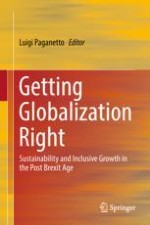2018 | OriginalPaper | Buchkapitel
On the Sources of Political Discontent in Europe
verfasst von : David Freyr Bjornsson, Gylfi Zoega
Erschienen in: Getting Globalization Right
Aktivieren Sie unsere intelligente Suche, um passende Fachinhalte oder Patente zu finden.
Wählen Sie Textabschnitte aus um mit Künstlicher Intelligenz passenden Patente zu finden. powered by
Markieren Sie Textabschnitte, um KI-gestützt weitere passende Inhalte zu finden. powered by
